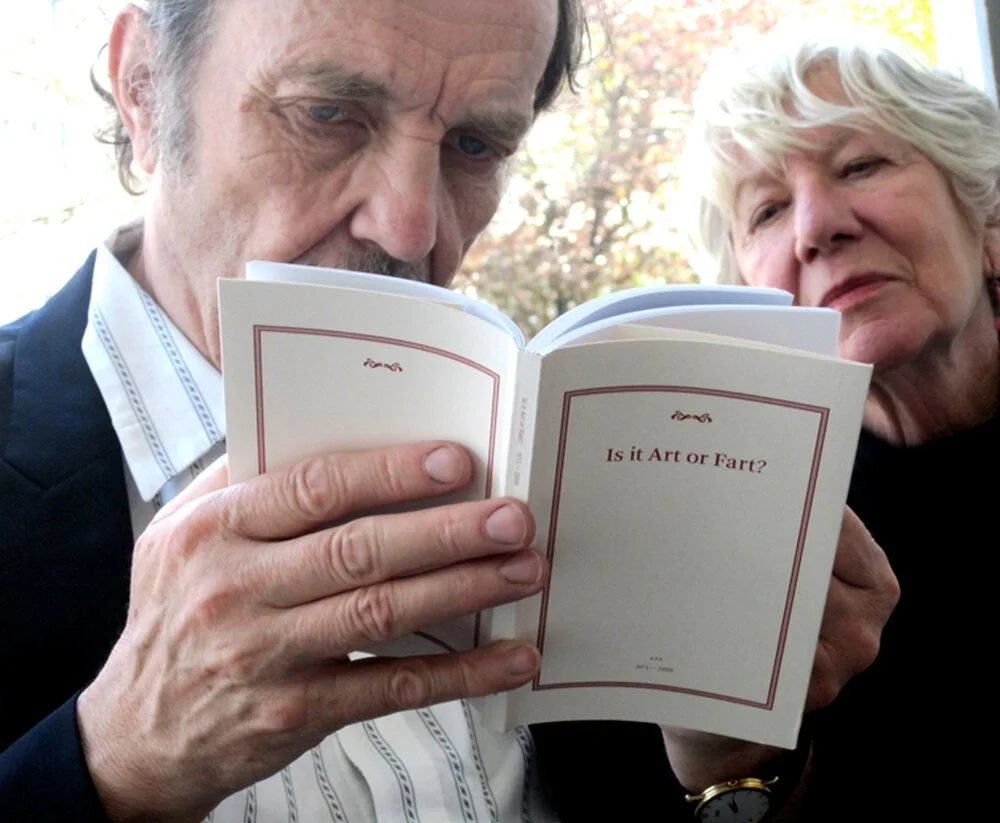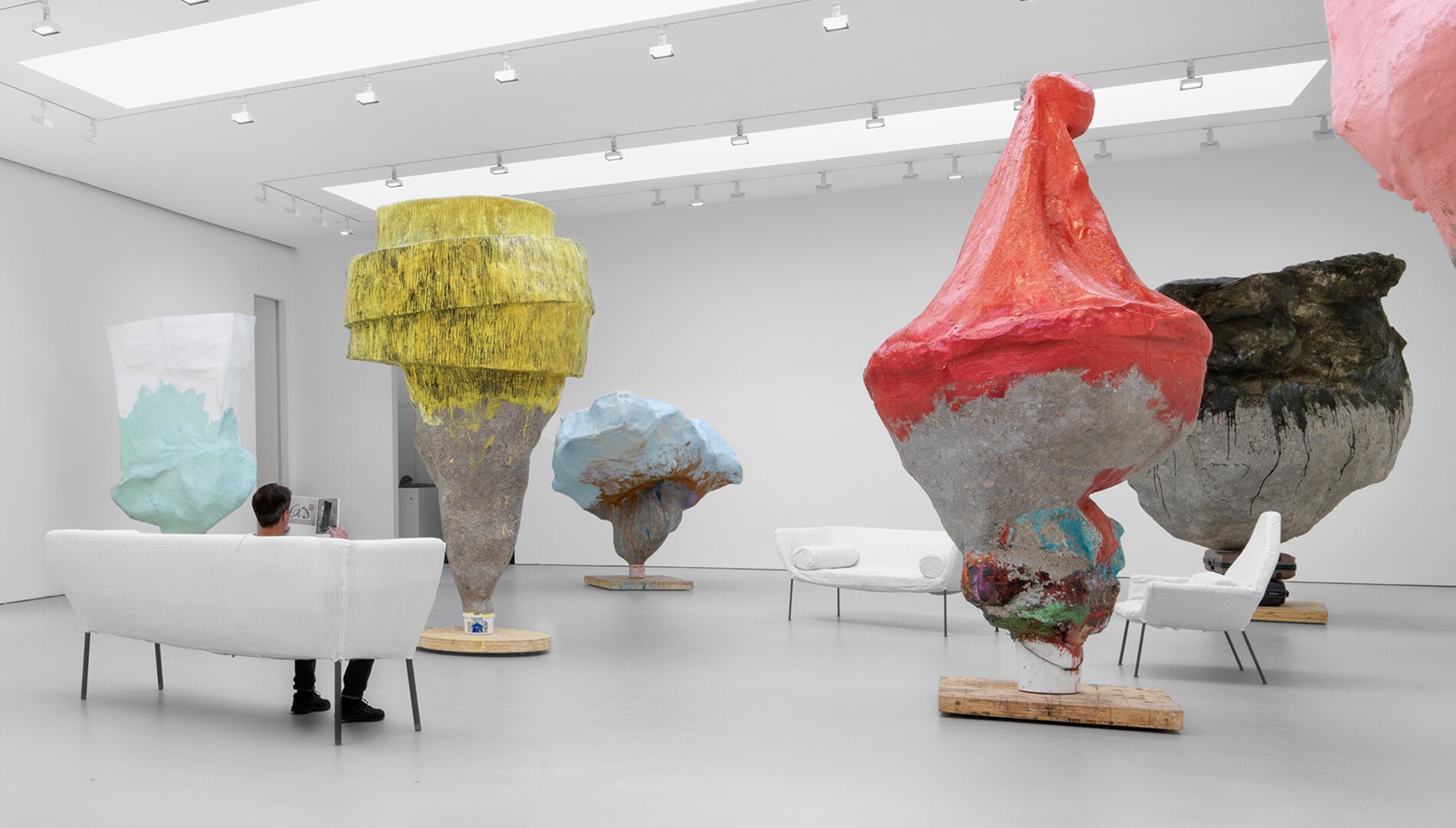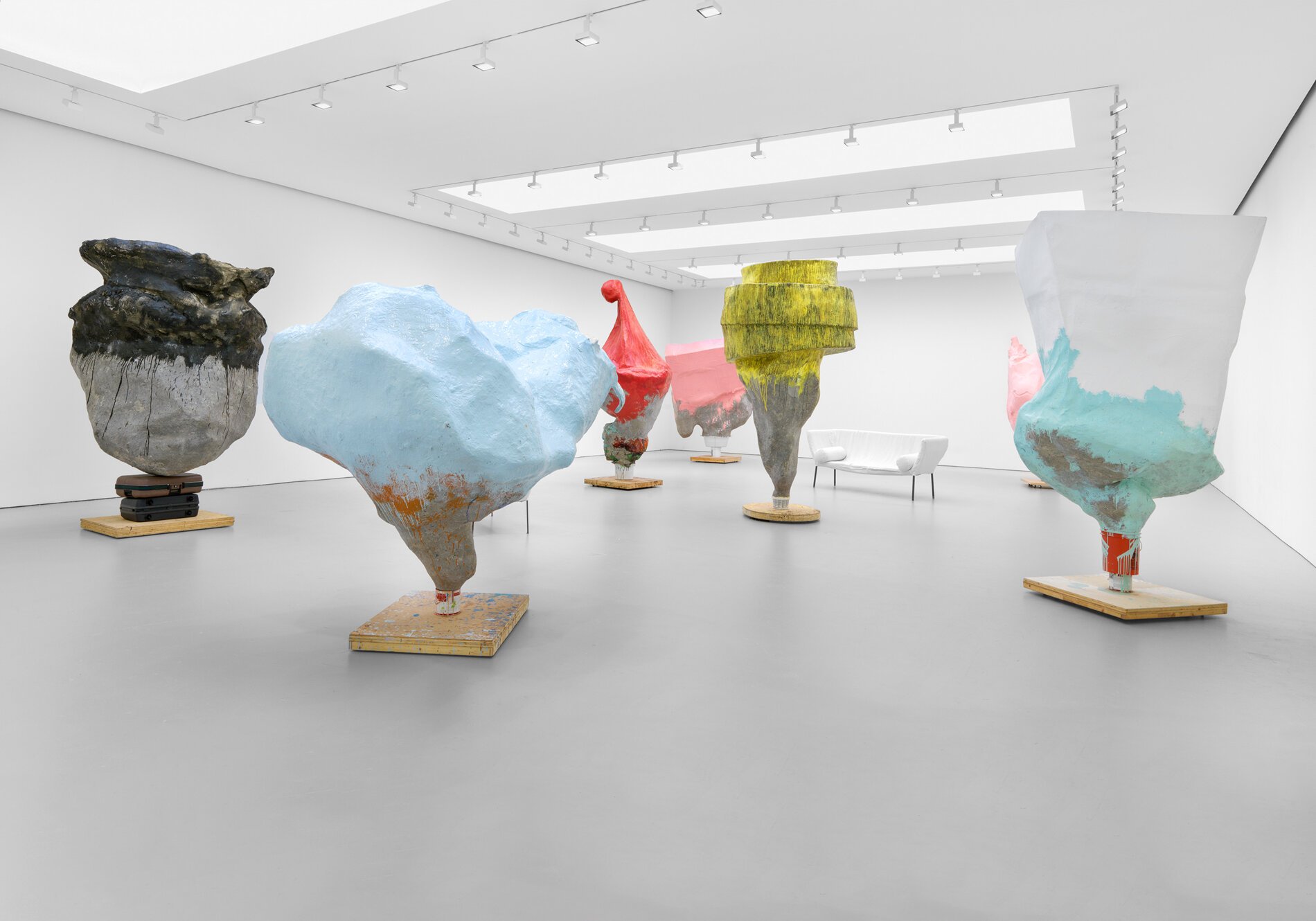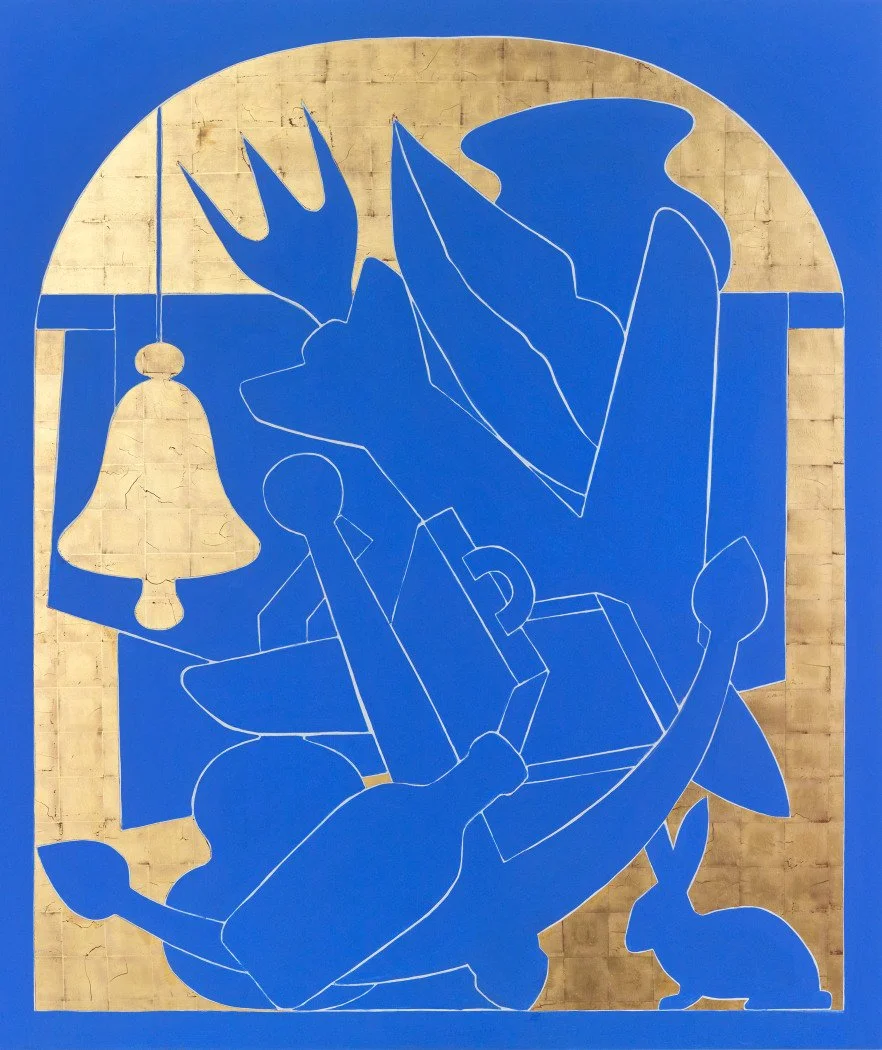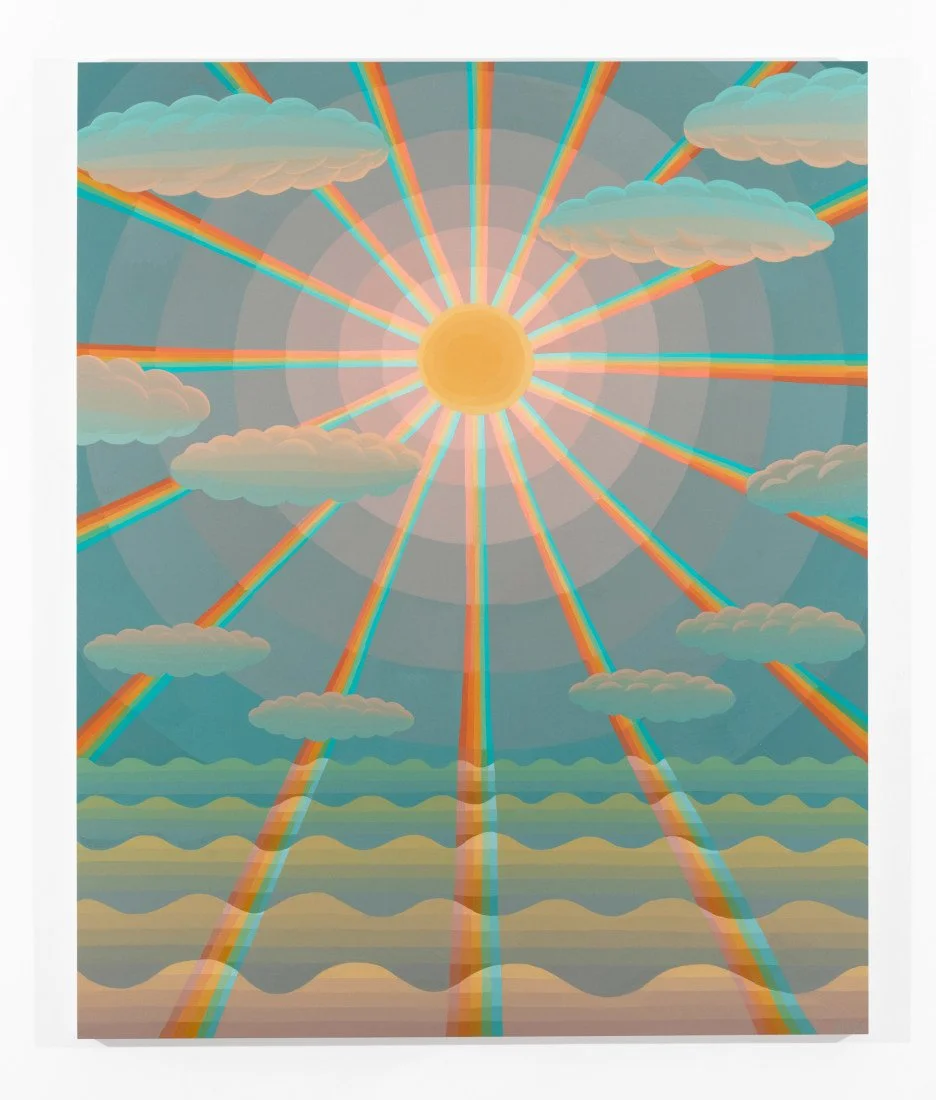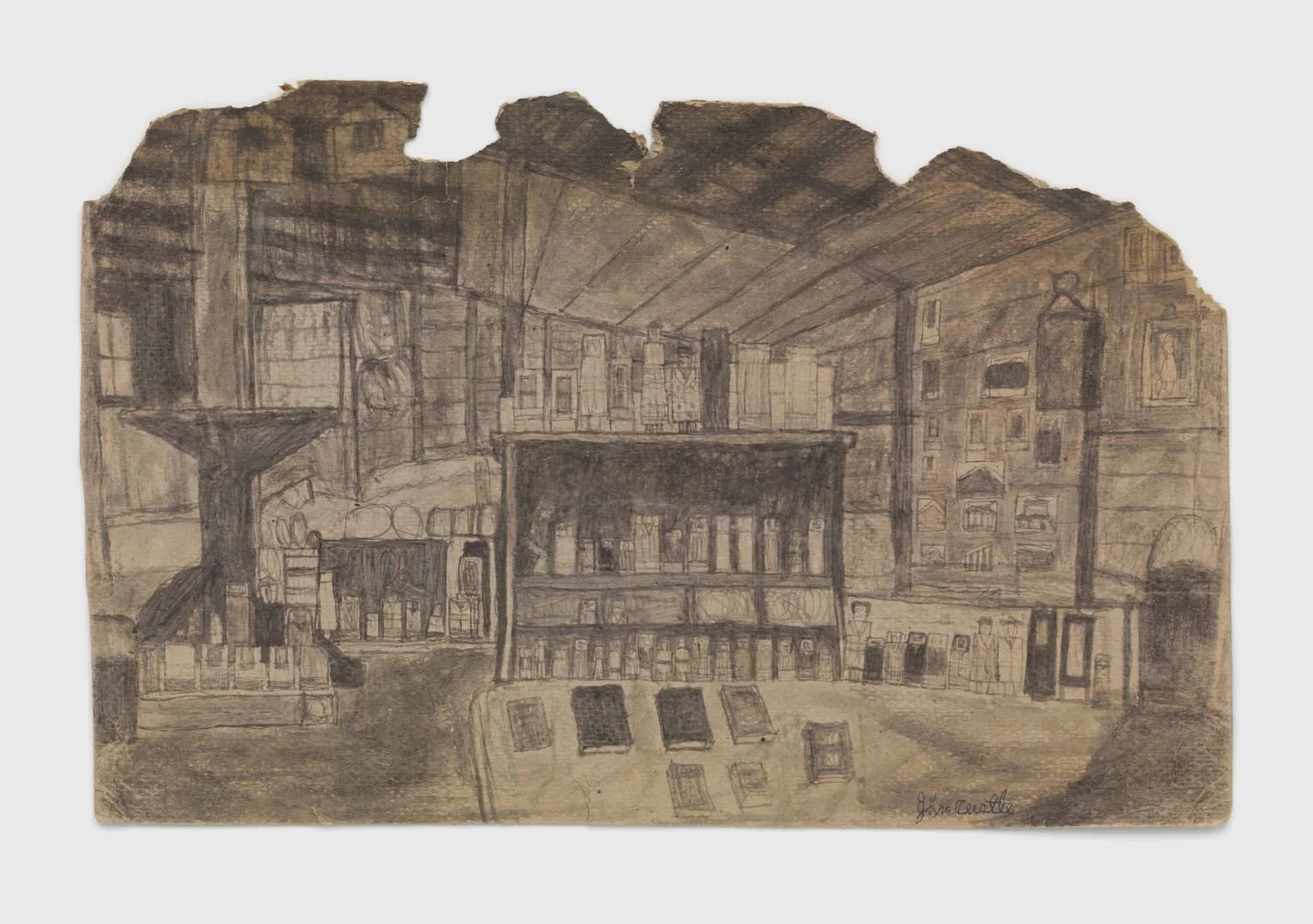Franz West
“Echolalia”
New York, 533 West 19th Street
Executed in 2010, only a few years before the artist’s death, Echolalia consists of seven colorful, larger-than-life sculptures that seem to stand slightly off-balance, interspersed with three cushioned divans. The work’s title—which refers to the repetition of words and sounds made by young children when learning to talk—was inspired by the artist’s son, who at the time of its creation was three years old and brought his own, distinct perspective to his father’s oversized works.
Not exhibited publicly in more than ten years, the work represents the apotheosis of West’s commitment to sculpture as social space, integrating the viewer within an immersive, total environment. Conceptually, the installation manifests the intersection of many of West’s ongoing interests—most notably, the playfulness of sculpture, the participation of the viewer, and the importance of language.
An installation view of the exhibition, Franz West: Echolalia, at David Zwirner in New York
A voracious reader throughout his lifetime, West was constantly and consistently incorporating various philosophical, psychoanalytical, and historical lines of thinking in his work, as though language itself was another material one could work with.
When Echolalia debuted in Rome in 2010, West published excerpts from the readings that came to influence the work, which included writings from figures across eras and disciplines, including Jacques Lacan, William Shakespeare, Sigmund Freud, Karl Marx, Mike Davis, Jean-Paul Sartre, Max Weber, and over a dozen others.
Franz West Echolalia, 2010 Papier-mâché, foam, gauze, cardboard, wood, steel, acrylic paint, foam, and linen in ten (10) parts Dimensions variable
West’s sculptures and installations often invite the public’s interaction, engaging his viewers in order to subvert traditional exhibition models. In the mid-1970s, he began creating his so-called Passstücke, or Adaptives, a number of which are on view in a concurrent exhibition of West’s work at our Paris gallery.
These roughly hewn, abstracted sculptural forms were intended to be handled by the viewer in a manner of his or her choosing, thereby “adapting” the works to their own physical being and context.

